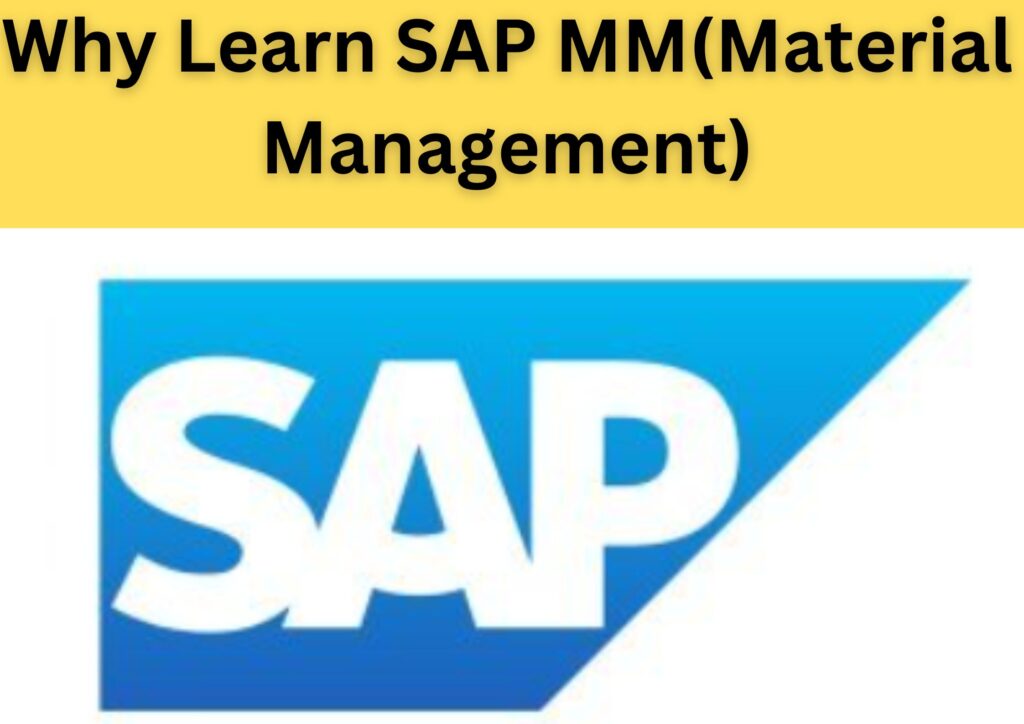There are several reasons why someone might choose to learn SAP MM (Material Management) module in the SAP system:

- SAP MM is a widely used module in the SAP system and has a high demand in the job market.
- It is an important module for supply chain management and plays a crucial role in an organization’s procurement and inventory processes.
- SAP MM provides numerous benefits to organizations, including improving efficiency and reducing costs through automation of procurement and inventory management processes.
- Learning SAP MM can lead to career advancement opportunities, as many companies are looking for professionals with SAP MM skills.
- SAP MM is a comprehensive module that covers a wide range of processes, making it a valuable addition to any professional’s skill set.
- SAP MM integrates with other SAP modules, such as SAP Sales and Distribution (SD), SAP Production Planning (PP), and SAP Financial Accounting (FI), which can improve the overall efficiency of business processes.
- SAP MM provides real-time visibility into inventory levels, enabling organizations to make informed decisions about procurement and production.
- It allows organizations to track and manage vendor performance, ensuring that the organization is working with the best vendors and getting the best prices for materials.
- SAP MM helps organizations comply with regulatory requirements and industry standards related to procurement and inventory management.
- It offers a range of reporting and analysis tools that can provide valuable insights into an organization’s procurement and inventory management processes.
- Overall, learning SAP MM can be a valuable asset for professionals looking to improve the efficiency and effectiveness of procurement and inventory management in their organization.
- SAP MM provides a central repository for storing and managing important data related to procurement and inventory management, including vendor and material master data, purchase orders, and goods receipts.
- It supports a variety of procurement and inventory management processes, including procurement of stock and non-stock materials, consignment, subcontracting, and returnable transport packaging.
- SAP MM integrates with external systems, such as Electronic Data Interchange (EDI) and Supplier Relationship Management (SRM), enabling organizations to streamline and automate their procurement processes.
- It offers tools for managing quality control, including inspection of incoming goods and handling of defective materials.
- SAP MM supports integration with warehouse management systems, enabling organizations to manage their warehouse operations more efficiently.
Overall, learning SAP MM can be a good investment for professionals looking to improve their supply chain management skills and advance their careers.